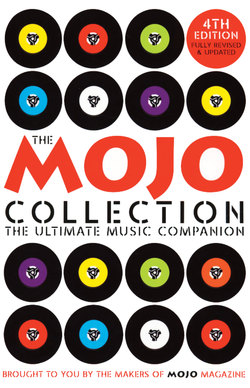Читать книгу The Mojo Collection - Various Mojo Magazine - Страница 68
На сайте Литреса книга снята с продажи.
David Blue David Blue Unexpectedly caustic debut from former Dylan affiliate.
ОглавлениеRecord label: Elektra
Produced: Arthur Gorson
Recorded: New York; 1966
Released: August 1966
Chart peaks: None (UK) None (US)
Personnel: David Blue (v, g); Paul Harris (p, o, celeste); Harvey Brooks (b); Monte Young (g); Herbert Lovelle; Buddy Salzman (d)
Track listing: The Gasman Won’t Buy Your Love; About My Love; So Easy She Goes By; If Your Monkey Can’t Get It; Midnight Through The Morning; It Ain’t The Rain That Sweeps The Highway Clean; Arcade Love Machine; Grand Hotel; Justine; I’d Like To Know; The Street; It Tastes Like Candy
Running time: 41:57
Current CD: Not currently available
Further listening: From his eponymous debut, David Blue became bleaker and more circumspect. The eventual follow-up These 23 Days In September (1968) is well worth locating, as are Stories (1972) and Nice Baby And The Angel (1973), none of which are available on CD.
Further reading: Follow The Music: The Life And High Times Of Elektra Records in the Great Years Of American Pop Culture (Jac Holzman and Gavan Dawes, 1997); Bob Dylan (Anthony Scaduto, 1998); www.davidblue.org
Download: iTunes
Hanging around with Bob Dylan in the early ’60s can’t have done much for your confidence. Aspiring folkie David S Cohen (later Blue) was part of the Bob in-crowd that included Eric Anderson, Dave Van Ronk, Phil Ochs and Tom Paxton. According to Anthony Scaduto’s book Bob Dylan, he even strummed the chords while Bob pencilled in the lyrics for Blowin’ In The Wind.
While Bob rallied the masses, Paxton and Ochs signed to Elektra and by 1965 Jac Holzman’s label also had designs on a whole host of other regulars from the Greenwich Village scene. As David S Cohen, Blue’s first recordings appeared on The Singer-Songwriter Project alongside tracks by Richard Farina, Patrick Sky and Bruce Murdoch and, within a year, he was in the studio recording this self-titled album. It should have all been so easy. But it wasn’t. For whatever reason, David Blue left David S Cohen’s folky innocence in the closet. Instead, his debut became a strange mutation of influences – musical, social and otherwise. Dylan’s Highway 61 Revisited had changed all the rules about electricity, while Love had just signed to Elektra and their first two albums bookended Blue’s, changing the expectations of the label as the scene matured. Blue took up the challenge but to no avail.
Released alongside Tim Buckley’s self-titled debut, this terrific album went on the missing list. At the time its phased guitars, swirling organ, quasi-classical motifs and jazz-paced breaks were part and parcel of a music scene that was encouraging experiment. But lyrically, Blue added yet another dimension, presenting a grubby insight into Village life. Indeed, the album rolls around the floors of bedsit Greenwich examining its inhabitants, like a Super-8 movie shot against a sub-psychedelic backdrop. Its failure signalled Blue’s departure from the label and his slow decline into moody, morbid introversion. Certainly there’s a sense of foreboding amid the cool and smoky jazz inflections. You kind of know it’s all going to end in tears.
